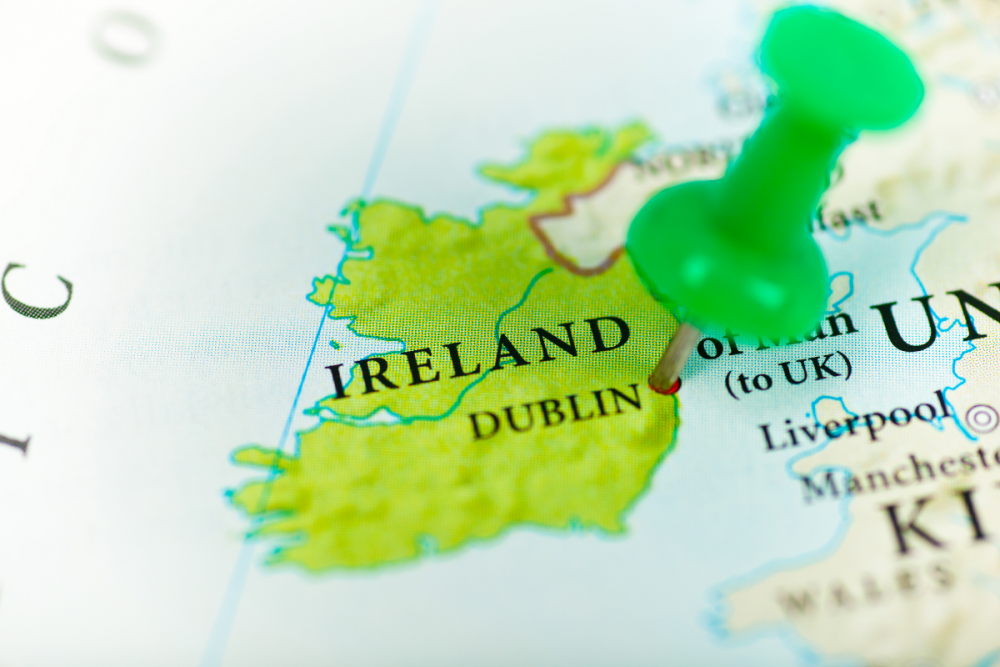Moving to Ireland From the US: What to Know

Ireland is a beautiful country with a rich culture, friendly people, and picturesque landscapes. From the bustling streets of Dublin to the rolling green hills of the countryside, Ireland offers a unique charm that’s hard to resist.
However, relocating from the US to Ireland can be a significant adjustment, both culturally and logistically. Before you make the leap across the pond, it’s crucial to understand what you’re getting yourself into.
While Ireland may seem like a relatively small island, the transition from American life can be more challenging than you might expect. The pace of life is generally slower, the weather is often dreary, and the cost of living can be surprisingly high.
For those willing to embrace the Irish way of life, the rewards are plentiful. You’ll find a tight-knit community, a deep appreciation for tradition, and a sense of pride and hospitality when moving to Ireland from the US.
Whether you’re moving for work, study, or simply a change of scenery, this guide will help you navigate the ins and outs of relocating to Ireland from the US.
Finding a Job Might Take a While
Before planning your move, be prepared for a potential job search. It can take some time to find employment, especially if you’re not already in the country. Having a solid amount of savings will help you get by during this period. Don’t get discouraged if it takes longer than expected – networking and persistence are key.
Adapting to Irish Customs and Etiquette
Beyond the cultural differences in socializing, there are other Irish customs and etiquette to be aware of. For example, tipping in restaurants and bars is generally expected, with around 10-15% being standard. It’s also considered polite to greet shopkeepers and servers with a friendly “hello” or “good morning” when entering an establishment.
The Weather Feels Cold
Coming from the US, you might find the Irish weather a bit chilly. Even during the summer months, temperatures rarely exceed 70°F (21°C). Be sure to pack plenty of warm clothes, including waterproof jackets, sweaters, and sturdy shoes. The constant rain and wind can take some getting used to, but there’s a certain charm to cozy pubs and roaring fires when the weather is gloomy outside.
Finding Accommodation
Securing housing in Ireland can be a challenge, especially in high-demand areas like Dublin. Start your search well in advance and be prepared to act quickly when good opportunities arise.
Consider looking for rooms or flatshares if you’re on a tighter budget, or investigate longer-term options like serviced apartments or housing schemes for newcomers.
Irish Culture Is Different Than American Culture
While the Irish are known for their warm hospitality, their social norms can be quite different from American culture. For example, it’s not as common for Irish people to have friends or acquaintances over for dinner at their homes.
Adjust your expectations and be open to embracing new cultural experiences. You might find that socializing happens more in pubs or organized gatherings rather than casual get-togethers at someone’s house.
It’s Helpful to Have a Car
Public transportation in Ireland is decent in major cities like Dublin, but it can be more challenging to get around in rural areas without a personal vehicle. If you plan to live outside of a city center, having a car will make your life much easier.
Whether you plan to purchase a new car in Ireland, ship your vehicle internationally, or ship your motorcycle internationally, the freedom to explore the stunning Irish countryside and take weekend trips is a major perk of owning a car or motorcycle.
Need Movers? Your Move, Your Choice

Instant Exact Cost for Your Specific Move
Agoyu’s AI technology give you quick, precise estimates. Scan your room, receive instant quotes from multiple movers, and confidently select the best option for you.
STEP 1 OF 3
STEP 2 OF 3
or Have a Top Mover Call Me Now!
Do it the old fashion way! A top mover will call you to provide an instant quote over the phone or at your house!
Public Healthcare is Fully Government Funded
One major perk of being a US citizen living in Ireland is the public healthcare system, which is fully funded by the government. While there are some downsides, such as long wait times for certain procedures, having access to free healthcare can be a significant financial relief compared to the high costs of healthcare in the US.
Cost of Living
Beyond the initial expense of relocating, there are several ongoing costs to consider when living in Ireland. Groceries can be pricey, and you’ll need to factor in the cost of plastic bags at supermarkets (there’s a fee for each bag used). Rent is also quite high, especially in cities like Dublin. Be prepared for a higher overall cost of living compared to many parts of the US.
However, there are ways to save money during your move and stretch your budget in Ireland. Eating out can be expensive, so cooking at home can save you money. Look into second hand stores for clothing and household items. Consider living in a smaller town or suburb outside of the major cities, where rent is often more affordable.
Football Is Important
When Irish people talk about football, they’re referring to soccer, not American football. Soccer is hugely popular in Ireland, and you’ll likely be exposed to discussions about various teams and matches.
Pubs will be packed on game days, and there’s a real sense of community and pride surrounding the sport. Even if you’re not a die-hard fan, it’s worth embracing the football culture and attending a match or two to soak up the atmosphere.
Embrace the Slower Pace of Life
One of the most significant adjustments you’ll need to make when moving to Ireland is adapting to the slower pace of life. Things tend to move at a more relaxed and leisurely rhythm compared to the fast-paced, hustle-and-bustle culture of many parts of the US. Learning to embrace this slower pace can be refreshing, but it may take some getting used to at first.
Dealing with Homesickness
It’s natural to experience feelings of homesickness and culture shock when relocating to a new country, especially one as different from the US as Ireland. Be prepared for moments of longing for familiar comforts and surroundings.
Building a support network, staying connected with loved ones back home, and finding ways to incorporate pieces of your culture into your new life can help alleviate these feelings.
Benefits of Moving to Ireland From the US
Despite the challenges, there are numerous benefits to relocating to Ireland:
Stunning Natural Beauty
From the rugged Cliffs of Moher to the lush green countryside, Ireland boasts some of the most breathtaking scenery in the world. Outdoor enthusiasts will find endless opportunities for hiking, cycling, and exploring the incredible landscapes.
Rich Cultural Heritage
Ireland is steeped in history, with ancient castles, charming villages, and vibrant traditions that make it a fascinating place to live. Immerse yourself in the local culture by attending festivals, music sessions, and cultural events.
Friendly People
The Irish are known for their warmth, hospitality, and laid-back approach to life. While it might take some time to build close friendships, you’ll find that the locals are generally welcoming and happy to chat.
Proximity to Europe
Living in Ireland as an expat gives you easy access to explore the rest of Europe, with budget airlines offering affordable flights to various destinations. Weekend trips to cities like London, Paris, or Amsterdam are entirely possible.
Excellent Education System
Ireland has a strong reputation for its high-quality education, from primary schools to prestigious universities like Trinity College Dublin. If you’re moving with children, you can feel confident in the standard of education they’ll receive.
Moving to Ireland From US: FAQs
Do I need a visa to move to Ireland from the US?
Yes, unless you have Irish or EU citizenship, you’ll need to and obtain a valid visa or residence permit to live and work in Ireland. The process can be lengthy, so start researching the requirements well in advance.
How difficult is it to learn Irish (Gaelic)?
While Irish is the official language of Ireland, English is widely spoken. Learning Irish can be challenging, but it’s not essential for day-to-day life. However, making an effort to learn some basic Irish phrases can be a great way to connect with the local culture.
Can I drive in Ireland with a US license?
Yes, you can drive in Ireland with a valid US driver’s license for up to one year after your arrival. After that, you’ll need to apply for an Irish driver’s license, which involves passing a theory and practical driving test.
How do I open a bank account in Ireland?
To open a bank account in Ireland, you’ll need to provide identification documents, proof of address, and potentially additional paperwork depending on the bank’s requirements. It’s a good idea to research different banks and their account options before arriving.
What is the process for finding housing in Ireland?
Finding accommodation in Ireland can be competitive, especially in major cities. Popular options include renting an apartment or house, sharing a flat with roommates, or looking into longer-term accommodations like serviced apartments or housing schemes for newcomers.
Plan your move and start your search well in advance, and be prepared to act quickly when good opportunities arise.
Final Thoughts
Moving to Ireland from the US can be an exciting and rewarding experience, but it also requires a significant amount of preparation and adjustment.
By understanding the cultural differences, the Ireland cost of living vs USA, job market, and other factors, you’ll be better equipped to make a smooth transition to your new life in the Emerald Isle. Embrace the challenges, immerse yourself in the local culture, and you’re sure to fall in love with this charming country.
The Agoyu moving app can help you plan your move to Ireland. Agoyu can help connect you to the best international movers. Check out the Agoyu app today to begin planning your move.


